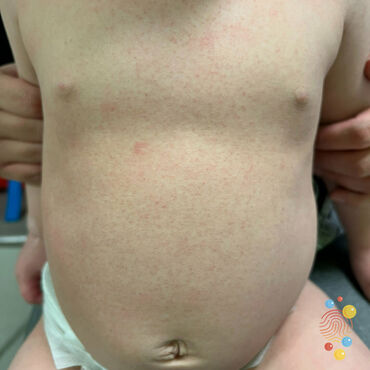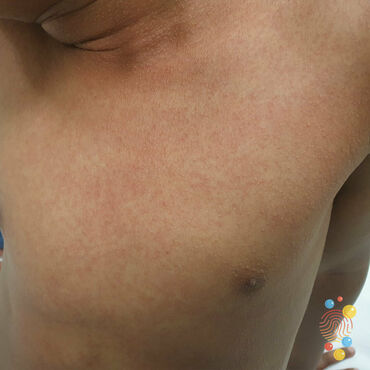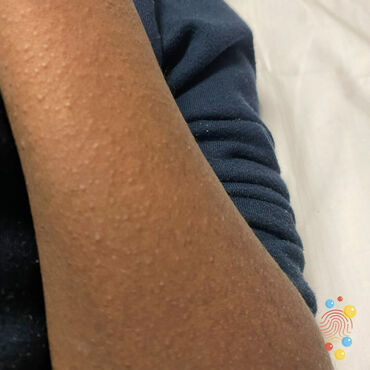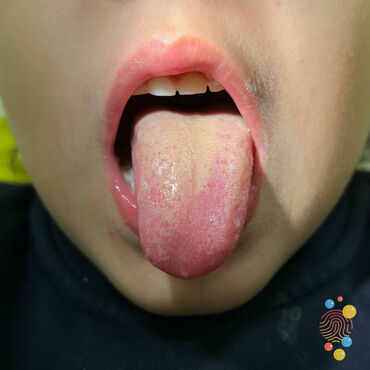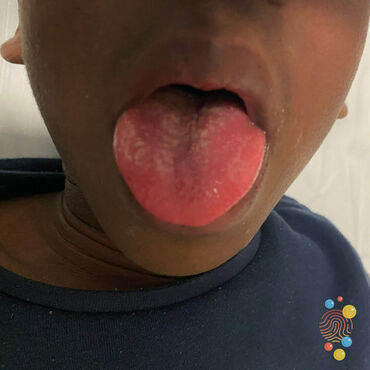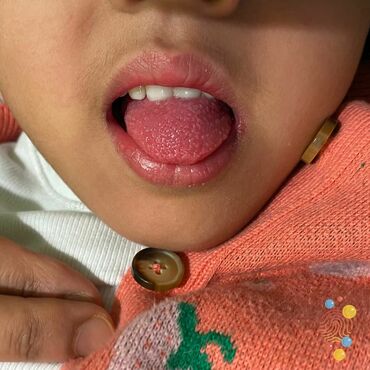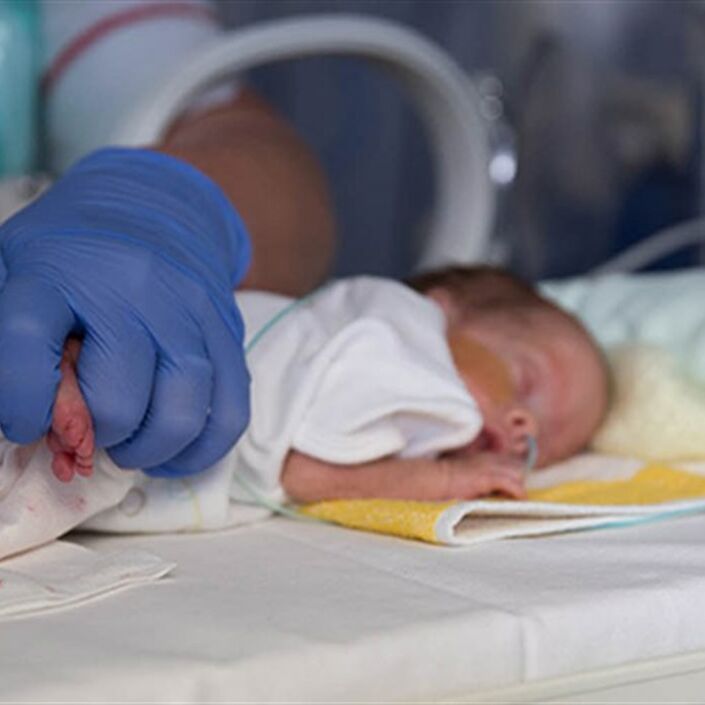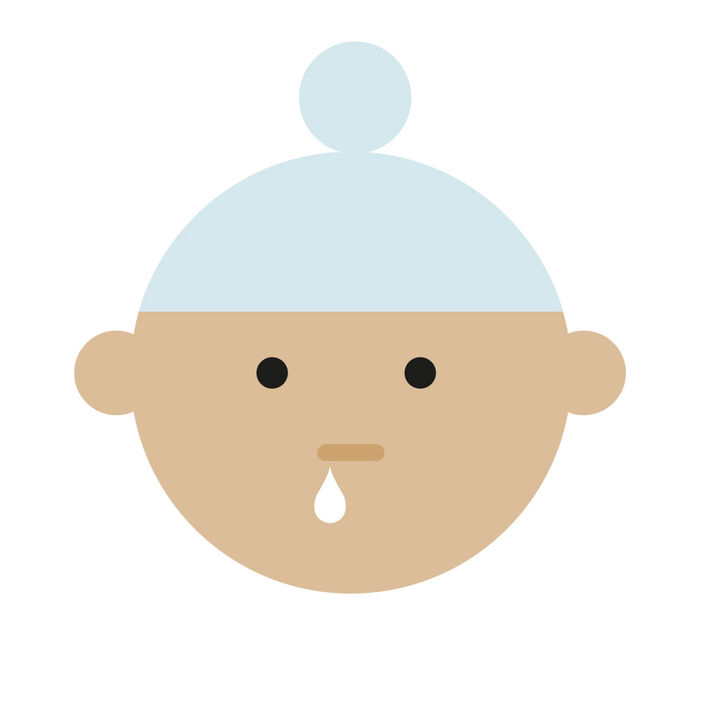Strep A, also called ‘Group A strep’, ‘Group A streptococcus (GAS)' or ‘a Group A streptococcal infection’ is a common type of bacteria that can cause infections. Rates of infection are usually highest in winter and spring.
Babies do not tend to become seriously ill from strep A, but you should always seek medical advice if you are concerned about your baby’s health.
People can be at greater risk of catching strep A if they have:
- A weakened immune system
- Open sores or wounds
- Other infections
What are the signs or symptoms of strep A?
Signs of strep A infection include flu-like symptoms (high temperature/fever, aching muscles, cough, headache) and a sore throat.
It can be hard to spot because symptoms are similar to viral infections such as a cold, flu or Respiratory Syncytial Virus (RSV). Symptoms can also include nausea and vomiting.
Strep A can also lead to other illnesses that have different symptoms. One of these is scarlet fever. In addition to the flu-like symptoms and sore throat, scarlet fever can cause a rash to appear.
On White skin or paler skin, this will appear as pink or red blotches. On Black, Brown or darker skin, it may be hard to see.
The rash has raised bumps, which will feel rough to the touch, a bit like sandpaper. The tongue may have a white coating on it and appear swollen or covered in bumps, which is known as ‘strawberry tongue’.
Strep A can also lead to other infections such as:
- Impetigo (pronounced im-pet-y-goh): a skin infection that starts with sore patches that turn into blisters and scabs. The sores can appear anywhere, but they are often found on exposed skin such as around the mouths, hands, and feet. The scabs are red with golden-brown patches at the side. They can be itchy and painful.
- Cellulitis
(pronounced sell-u-lit-uss): a painful skin infection that causes swelling. Skin may be hot and areas affected on White or paler skin tones may turn red.
- Pleural empyema (pronounced plural em-pie-eema): a bacterial infection in the lungs that can cause difficulty breathing, fever, and coughing up mucus.
- Invasive Group A Streptococcal infection (iGAS): a serious infection that requires hospital treatment (see below for more information).
Symptoms of strep A are usually mild and can be treated with antibiotics that work quickly, reducing the risk of passing on the infection within 24 hours. Without antibiotics, a strep A infection can stay for a long time and lead to more serious illnesses.
I think my child has strep A. What should I do?
Contact your GP if you’re concerned that your baby or child has strep A. You can also speak to NHS 111 or a pharmacist.
Strep A infections respond well to antibiotics, and if the GP believes it is a strep A infection, they will give you a prescription to treat it. Where there has been an increased demand for some antibiotics due to high levels of strep A infections, pharmacists are able to issue other suitable antibiotics if the ones prescribed are not available.
When is strep A serious?
There has been a lot of information in the media about increased strep A infections and deaths in children. This can be worrying for parents and carers, especially parents with babies born sick or premature. These deaths are caused by something called ‘Invasive Group A streptococcus’ or ‘iGAS’. iGAS is extremely uncommon in babies, so it is very unlikely that your baby will have it.
What is Invasive Group A streptococcus (iGAS)?
Invasive Group A streptococcus, or iGAS, is a serious infection caused by strep A, which can lead to life-threatening conditions such as:
- Necrotising fasciitis: a severe infection in the soft tissue below the skin.
- Streptococcus toxic shock syndrome: where infection spreads through the bloodstream releasing harmful toxins (poisons) into the body.
These are medical emergencies that require urgent hospital treatment. If you have serious concerns about the health of your baby or child, call 999 or go to your nearest hospital’s Emergency Department (A&E).
How can I reduce the chances of my baby catching strep A and other infectious illnesses?
The strep A infection is spread by close contact with an infected person, through droplets (from coughing or sneezing) and skin contact.
If your baby has a chronic lung condition or disease, you may be concerned about their health. It’s important to note that babies have a very low chance of getting an iGAS infection, but as with any common infectious illness, you will want to protect your baby.
Wash your hands regularly and carefully, keep things around your baby clean (toys and highchair, for example) and try not to be in close contact with people who are clearly feeling unwell.
Your health visitor, GP or other medical professional involved in the care of your infant will be able to talk through any of your concerns.
Are there any vaccines that can help?
There are no vaccines for strep A, but data suggests that children who have had the nasal flu vaccine are less likely to catch strep A and iGAS infections.
The nasal flu vaccine is offered free to children aged 2 and above every year, usually in late autumn or early winter. It is a painless squirt of liquid given in each nostril.
Preschool children can have the vaccination at their GP surgery. School-age children will be offered the vaccine at school. If you miss the school vaccination, or would like more information about the vaccine, visit the NHS website or contact your GP.
The nasal flu vaccine isn’t available for children below the age of 2, but they may be offered a flu injection, especially if they have a weakened immune system or a long-term health condition, such as breathing problems or a heart condition. Ask your GP if you’re concerned.
Flu season tends to peak in late January, but it can carry on through spring. Vaccines can offer some protection into the next season, so it is still worth having a vaccination late in the regular flu season.
If you are worried or would like more information about strep A and other infectious illnesses, contact your GP, health visitor, community nurse or neonatal team. You can also dial 111 or use these out-of-hours services:
Dial 999 immediately if you think your baby might be seriously unwell.
If you have questions about strep A, iGAS, or anything to do with looking after a sick or premature baby or child, you can email [email protected] and we will be back in touch soon.
Do not contact us if you think your child is seriously ill – seek professional medical advice instead.
If you have a baby on the neonatal unit, or have recently returned home, you can book a video call with one of our Bliss Champions. These experienced volunteers offer emotional and practical support, and a listening ear. They can help you find the right information for you, such as support with going home from the neonatal unit or spotting symptoms of common infectious illnesses.
You can also visit Bliss’ pages on Facebook, Instagram or Twitter to see more about the work we do supporting parents of babies born premature or sick.

